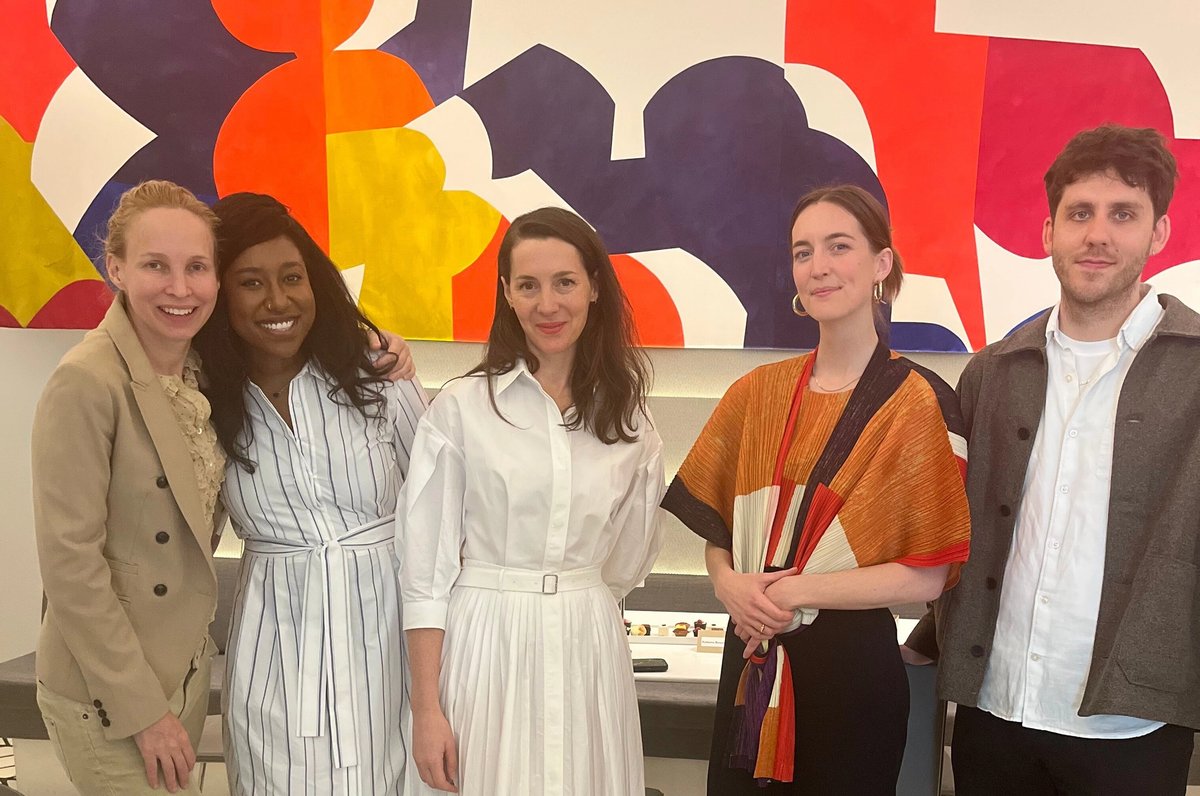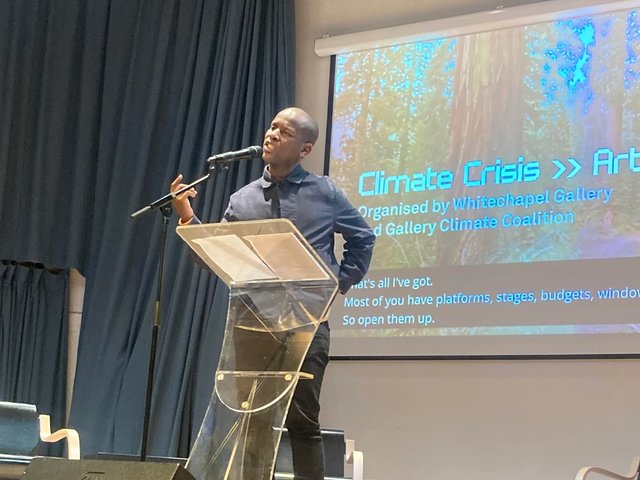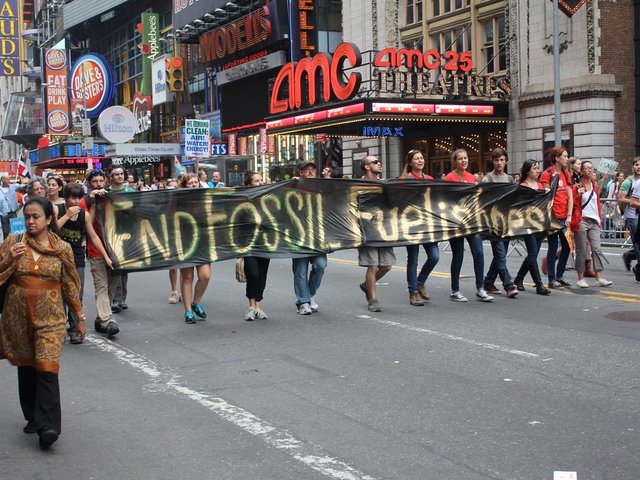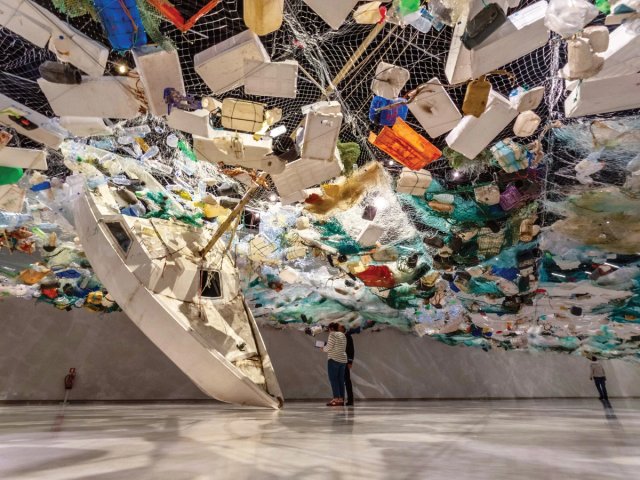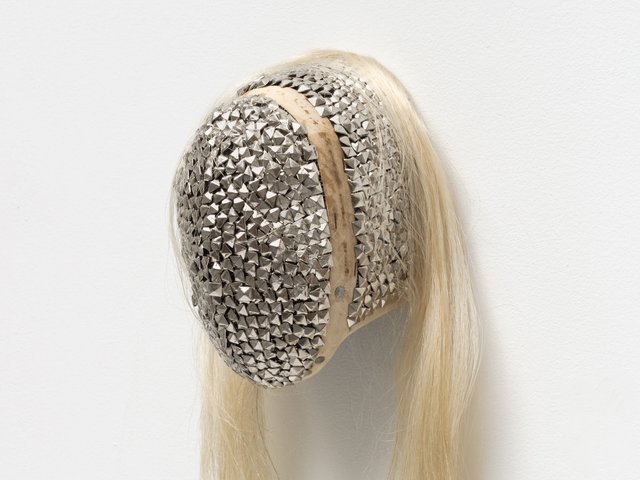Since its founding in London in 2020, the non-profit environmental group Gallery Climate Coalition (GCC) has promoted system-wide change to achieve zero waste and reduce the sector’s carbon emissions by at least 50% by 2030. The international group supports its members by calculating and reducing emissions, developing and sharing best practices, fundraising for environmental initiatives and other activities. With more than 800 members across 40 countries, GCC represents the largest sustainability coalition in the art industry. Last month, the group expanded its reach and launched a new chapter in New York City.
The New York chapter marks GCC’s sixth official branch, joining London, Berlin, Italy, Los Angeles and Taiwan. With additional branches soon to be announced—informal volunteer groups have already formed in countries including Switzerland and Spain—GCC is looking ahead toward more global expansion.
“International alignment and collaboration are essential to the coalition's success,” says Victoria Siddall, the GCC's co-founder and trustee. “We know that for the art world to meet GCC’s goals, they must be embraced across all of the major art centres. New York is so influential in our industry; the community there has the power to create changes that ripple out across the whole sector.”
Nine founding members from museums, galleries, advisories and non-profits have joined the New York branch, including Haley Mellin, founder of Art into Acres; Laura Lupton, co-founder of Galleries Commit, Artists Commit, Barder and PACT; Chiara Repetto, founder and director of the gallery Kaufmann Repetto; and Whitney McGuire, associate director of sustainability at the Guggenheim Museum.
GCC celebrated the New York launch at the Guggenheim on 21 April, using the event as an introduction to the initiative’s goals and achievements, as well as an invitation and call to action for other art businesses and institutions in the city to join. The first informational meeting open to the community will be held virtually on 30 May at 10am New York time.
“While we cannot solve the climate crisis alone, the Guggenheim Museum and over 800 organisations worldwide that have already joined GCC, can—and will—set a precedent for other industries,” says McGuire. “It’s vital to our progress as we step out of competitive siloes and into a future where our collaborative efforts can make a difference.”
The launch of GCC New York bolsters existing efforts of Galleries Commit, the worker-led, grassroots climate initiative that formed in the city in 2020. Galleries Commit and GCC emerged simultaneously in New York and London, respectively, and have worked together to align on sustainability goals ever since. They are both founders of an international visual arts climate pact and have supported climate actions, including emissions and waste reduction, resource sharing and donations to land conservation.
The Guggenheim, for example, conducted a carbon emissions study of its 2022 exhibition Cecilia Vicuña: Spin Spin Triangulene in consultation with the artist and Art into Acres, the non-profit founded by Mellin that supports large-scale land conservation. Upon completing the study, the Guggenheim engaged in emissions-reduction work and supported permanent land conservation through Art into Acres in Vicuña’s home country of Chile.

Conserved area of Southern Chile, a protected area supported in tandem with the Cecilia Vicuña exhibition at the Guggenheim Museum © Eduardo Hernandez. Courtesy Rewilding Chile
"There is a powerful, grassroots legacy in New York that is indicative of the kind of community-led change necessary to effectively combat the most perilous effects of the climate crisis,” says Lupton. “Climate fluency and community are needed to inspire ongoing action. That ongoing action is made possible thanks to the resources and tools that GCC provides.”
While the long-term goal of the New York chapter is to align with GCC’s carbon-reduction and zero waste plans, the short-term focus will be on building relationships with groups like Galleries Commit. “One of GCC New York’s key roles will be to build a community focused on sharing information and resources and mutually supporting and encouraging each other toward effective climate action,” says Heath Lowndes, managing director of GCC. “Collaboration will be crucial to this, so starting community outreach and alignment will be the first step toward supporting institutions.”
With many overlapping members, including Marianne Boesky Gallery and Charles Moffett Gallery, GCC and Galleries Commit will continue to work in tandem to support the New York arts sector on both a leadership and worker level. The two groups have already benefited from one another. Galleries Commit, for example, uses GCC’s free carbon calculator to complete its climate impact reports.
Similarly, steps that GCC members take with Galleries Commit can support the GCC Active Membership programme. Announced last year, Active Membership marks a significant milestone in GCC’s growth as they aim to avoid greenwashing. The initiative requires participants to turn sustainability pledges into concrete actions and will be re-evaluated annually. Galleries Commit recently launched a similar initiative called Climate Action 8x8.
“GCC’s Active Membership marks a change in strategy, from resource provision and raising awareness to one based on tangible action, reinforcing GCC’s role in driving change across the sector,” says Lowndes. “Beyond the quantifiable benefits of holding organisations to account, there is the intangible impact from accelerating the environmental responsibility conversation and normalising decarbonisation strategies.”
In addition to the Active Membership programme, GCC has marked several milestones of progress over the last three years. Beginning in July 2021, GCC partnered with Christie’s and the non-profit environmental law firm ClientEarth on a series of sales to raise unrestricted funds for ClientEarth. Over the course of a year and through the sales of works by Cecily Brown, Rashid Johnson, Xie Nanxing, Antony Gormley and Beatriz Milhazes, the fundraising effort raised £5.5 m.
In spring 2022, GCC also launched a Sustainable Shipping Campaign based on two years of research and data collection. In collaboration with environmental advisors, shipping and supply vendors and representatives from across the arts sector, the project resulted in a comprehensive, international campaign to address issues and set new standards for shipping.
As for its continued expansion, GCC’s New York chapter represents a crucial step in tying local and global initiatives and building on the city’s intersectional grassroots movements.
“Education and awareness are key to sustainability. By focusing on intersectional approaches, GCC supports individualised action plans to address the entire industry's impact on the environment," says Mellin, who is a founding member of GCC’s New York and Los Angeles chapters. “A global issue takes a global solution; we can only support a path toward sustainability if we work together.”


